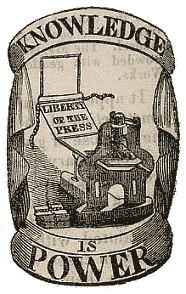IN THE FIRST OF WHAT I BELIEVE WILL BE MANY EXECUTIVE ORDERS GIVEN BY THE 'MESSIA' IN THE OVAL OFFICE. The President is about to direct that those executives that received federal bail out money can only make $500,000 as salary.
Never before has a president interfered in the daily activities of our banks and financial institutions. Closing the banks is a Constitutional authority delegated to the government in times of crisis as did FDR in the 30's.
But dictating the salary of executives in the private sector are not within the control of the president, unless he thinks he is Our dictator!
The job of limiting the pay of executives of private corporations is the duty and responsibility of the Board of Directors and stock holders, not the POTUS!
The president is the leader of the free World, but not the leader of the Free Enterprise system that operates the machine that allows people like Obama to be in the "princely" places like the White House.
The "Obamaphiles" are not satisfied with just limiting the pay of CEOs. They also proposed the following:
The administration will also propose long-term compensation restrictions even for companies that don't receive government assistance.
* Requiring top executives at financial institutions to hold stock for several years before they can cash out.
* Requiring nonbinding "say on pay" resolutions - that is, giving shareholders more say on executive compensation.
- A Treasury-sponsored conference on a long-term overhaul of executive compensation.
Top officials at companies that have received money from the government's Troubled Asset Relief Program already face some compensation limits. But elected officials want to place more caps.
"I do know this: We can't just say, 'Please, please,'" said Sen. Claire McCaskill, D-Mo., who has proposed that no employee of an institution that receives money under the $700 billion federal bailout can receive more than $400,000 in total compensation until it pays the money back.
The figure is equivalent to the salary of the president of the United States.
Predictably, the leak of this threatening news has brought an immediate negative reaction from the private sector.
"Compensation experts in the private sector have warned that such an intrusion into the internal decisions of financial institutions could discourage participation in the rescue program and slow down the financial sector's recovery. They also argue that it could set a precedent for government regulation that undermines performance-based pay". Source: MYWAY.com
Even some Republicans see no harm in setting the principals that if government gives you money they can attach rules of operation.
"In ordinary situations where the taxpayers' money is not involved, we shouldn't set executive pay," said Sen. Richard Shelby of Alabama, the top Republican on the Senate Banking Committee.
"But where you've got federal money involved, taxpayers' money involved, TARP money involved, and the way they have spent it, with no accountability, is getting close to being criminal."
This principal has been in operation under the cover of affirmative action for years. The rules of employment for companies that employ more than fifty employees have had quotas for all levels of management based upon numbers set by the federal government to ensure that se percentages of minorities and women occupy supervisor positions.
And Medicare has had rules for doctors and hospitals dictated to them for accepting Federal funds, but the "Change That has Come to America" appears to me to be reaching into the heart of the free enterprise system when the President dictates what the maximum can be for CEO's of our banks. What will be next?
Our Constitution details the powers of the President, and essentially they are a follows: The President is the chief executive of the United States, putting him at the head of the executive branch of the government, whose responsibility is to "take care that the laws be faithfully executed." To carry out this duty, he is given control of the four million employees of the federal executive branch, including one million active duty personnel in the military. Both the legislative and judicial branches maintain checks and balances on the powers of the President and vice versa.
Various executive and judicial branch appointments are made by Presidents. Up to 6,000 appointments may be made by an incoming President before he takes office and 8,000 more may be made while in office. Ambassadors, judges of the federal court system, members of the Cabinet, and other federal officers, are all appointed by the President with the "advice and consent" of the Senate, granted by a simple majority. Appointments made while the Senate is in recess are temporary and expire at the end of the next session of the Senate. He may also grant pardons and reprieves, as is often done just before the end of a presidential term.
In addition, while the President cannot directly introduce legislation, he can play an important role in shaping it, especially if the President's political party has a majority in one or both houses of Congress. If Congress passes a bill of which the President disapproves, he may veto it; the veto can be overridden only by two-thirds of both houses of Congress, making it substantially more difficult to enact the law.
Perhaps the most important of all presidential powers is command of the armed forces as commander-in-chief. The framers of the Constitution never intended that the president would reach into the private sector and limit the salaries of executives of business even if he uses the excuse that it is in the name of saving the economy!
Wednesday, February 04, 2009
Subscribe to:
Post Comments (Atom)








1 comment:
It is hard to believe that our taxes can be collected and spent properly when the man whom Obama chose to run the cabinet position that contols the IRS is like the "fox in the hen house" with his own tax evasion!
Post a Comment